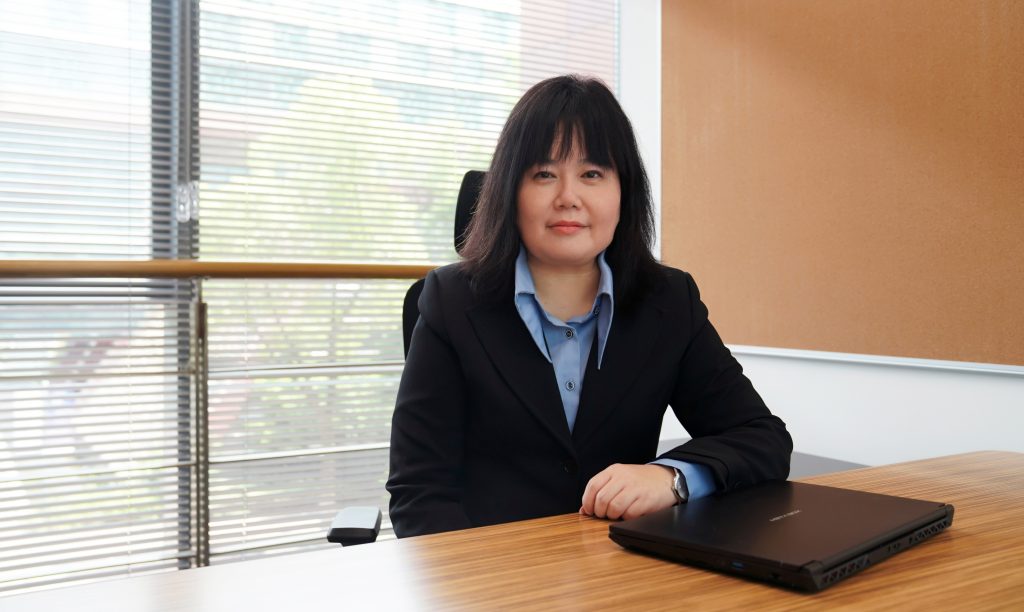11 Feb 2023
As a society, we need to do more to ensure that young girls get the support and resources they need to pursue their dreams and become a STEM (science, technology, engineering and mathematics) professional.
 Kah Phooi Seng, professor at the School of AI and Advanced Computing, XJTLU Entrepreneur College (Taicang)
Kah Phooi Seng, professor at the School of AI and Advanced Computing, XJTLU Entrepreneur College (Taicang)
In an interview with Professor Kah Phooi Seng, from the School of AI and Advanced Computing at the XJTLU Entrepreneur College (Taicang), she expresses her passion for inspiring girls to take the STEM path. She particularly highlights the academic fields of artificial intelligence (AI), the Internet of Things (IoT) and big data, where women are under-represented.
“Today, a historically unprecedented number of girls are studying and excelling in mathematics, engineering, technology, and science. Yet, the dramatic educational achievement of girls has not spilt over into the STEM workforce. We don’t see a similar increase in the number of women working as mathematicians or computing and engineering professionals,” says Professor Seng. “Today, a historically unprecedented number of girls are studying and excelling in mathematics, engineering, technology, and science. Yet, the dramatic educational achievement of girls has not spilt over into the STEM workforce. We don’t see a similar increase in the number of women working as mathematicians or computing and engineering professionals,” says Professor Seng.
According to the report “The State of Girls and Women in STEM,” published by the National Girls Collaborative Project in the US in 2022, the gender gap in STEM education becomes apparent at the undergraduate level. In the US, female students only make up 22% of engineering and 20% of computer science undergraduates. A similar rate is seen across the globe; UNESCO’s research indicates that women make up the majority of university students but no more than 30% of STEM enrolment.
The great gender disparities in computer sciences and engineering education lead to women only constituting 26% of the computer and mathematical sciences workforce and 16% in engineering in the US.
In 2017, United Nations Educational, Scientific and Cultural Organisation (UNESCO) released a report providing reasons for the gender inequality problem. Curricula design and the availability of learning materials are two main factors causing female students’ low level of participation in STEM. Professor Seng is deeply concerned by this fact.
With more than twenty years of teaching experience in universities in Australia, China, Malaysia and the United Kingdom, Professor Seng regards the Syntegrative Education (SE) model of XJTLU Entrepreneur College (Taicang) as a unique curricula design for female students to excel in STEM. The SE model is based on close cooperation between the College and its industry partners. It integrates knowledge in the classroom with pragmatic approaches, offering students valuable opportunities to gain problem-solving skills with industry leaders and experts, and preparing students for real-world challenges.
No “woman” is an island
Professor Seng is passionate about using her work in AI to collaborate with scientists from other research areas. In the coming years at XJTLU Entrepreneur College (Taicang), her research will focus on combining multimedia AI with cognitive intelligence, embedded intelligence and edge AI. She aims to lead collaborative projects that develop the College’s research cluster and reflect modern-day perspectives on research areas in AI, industry needs and societal concerns.
Aside from teamwork, Professor Seng pursues self-efficacy through constant personal growth and has established an international reputation in her field. She has more than 250 articles published in academic journals and presented at many international conferences. Over the past five years, Professor Seng has published two books in collaboration with academics at other universities. The books, “Multimodal Analytics for Next-Generation Big Data Technologies & Applications” and “Artificial Intelligence, Machine Learning & Mental Health in Pandemics: A Computational Approach”, were published by renowned publishers Springer and Elsevier.
Recently, a study published by Stanford University in 2022 listed Professor Seng among the top 2% of the world’s most-cited scientists for single-year citation impact.
Women are in the minority when it comes to STEM-related education and career paths. Yet, there are female scientists like Professor Kah Phooi Seng who contribute to the advancement of STEM research and development, and become role models to inspire female students entering the world of STEM.
By Haolun Xu
Edited by Catherine Diamond, Tamara Kaup
Photo by Kah Phooi Seng
11 Feb 2023








